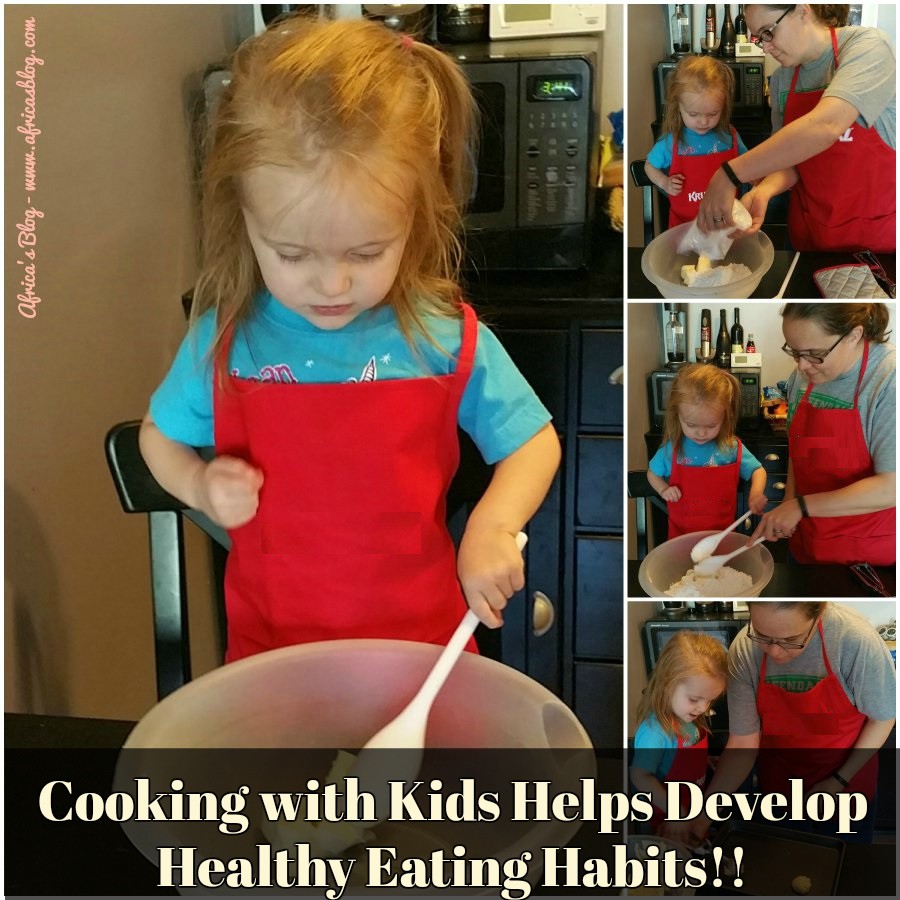The benefits of cooking dinner with kids have been well-documented. In addition to the family time and sense of togetherness you can experience, you will also find that dinners are a great opportunity to teach kids about the principles of healthy eating. With processed foods everywhere, there has never been a better time to start a new tradition and make cooking with kids a nightly affair.
Whether you have toddlers or teens, they can benefit from a crash course in nutrition, cooking and healthy eating, and you can benefit from the chance to impart your knowledge. There are a number of other benefits you might expect. If you want to give the whole family an advantage in eating, take the opportunity to be proactive and involve kids in their diet.

You might be surprised by how it affects your family’s habits and encourages you to adopt better ones.
Here’s 5 ways you can get your kids involved in the cooking (& family meal time) in your home!
Cooking with Kids – developing health eating habits in your home!!
-
Finding the Time
Many families are incredibly busy and struggle to find the time for nightly dinners, but studies suggest that most are still practicing the tradition. Whether or not you partake in family dinners regularly, now is a good time to start. Families who eat together often have a greater sense of contentedness, and the routine is beneficial to kids who seek out regular scheduling.
In addition to cooking together, keep the spirit of family dinners alive by using the time to open a dialogue and discuss the food you are eating. You may be surprised by the questions kids have. -
Making a Plan
If you want to get the most out of these dinners, it is a good idea to make a plan beforehand and strategize how you will use the time to teach kids about healthy eating.
Perhaps you can have a weekly topic of discussion that all family members must ponder and contribute to, and you can encourage critical thinking by relating it to the meal that is served.
Once you have set aside the time for family cooking, it is up to you to leverage it to your family’s benefit and use it to develop better eating habits. -
Discussing Nutrition With Kids
The best way to invest in your kid’s health and well-being is to talk to them about it and show them they can come to you with questions and concerns. When it comes to discussing healthy eating, you’re likely to see the best results when you show rather than tell.
This is why family dinners are the perfect opportunity for doing so.
When you are cooking, encourage kids to ask questions so they can learn about the foods they eat. This accountability is the driving force behind food startups such as the recently-launched Hampton Creek Just line of products. -
Encouraging Questions
As is mentioned above, encouraging questions is an essential component of successfully imparting healthy eating skills. The primary component in healthy eating is developing the knowledge necessary to understand your foods and their ingredients.
When you teach your kids to do this at the dinner table, they will be equipped to do it at the grocery store, too. This is how kids develop the critical thinking skills to make better choices regarding their diet.
With their knowledge, they can see that a Hampton Creek ingredient list is better than one stuffed with additives and preservatives. -
Give Kids the Tools to Eat Well
Kids will eat well and develop the skills necessary to be critical about food when they see such behavior modeled for them. As a parent, it is your responsibility to do so and find new ways to open dialogues surrounding food.
You might be surprised to see that your kids are excited about nutrition and clean eating when they are given the opportunity to get involved in their diet and contribute to family dinners.
As you begin this new tradition, you can be sure it will benefit your kid’s health in the future and your bonding as a family. There is no substitute for the benefit of a positive role model. By establishing family dinner as a tradition, and being proactive in using it to encourage nutritional knowledge, you are planting the seeds that will make your child a conscientious consumer as they continue to grow and learn about the food around them.



